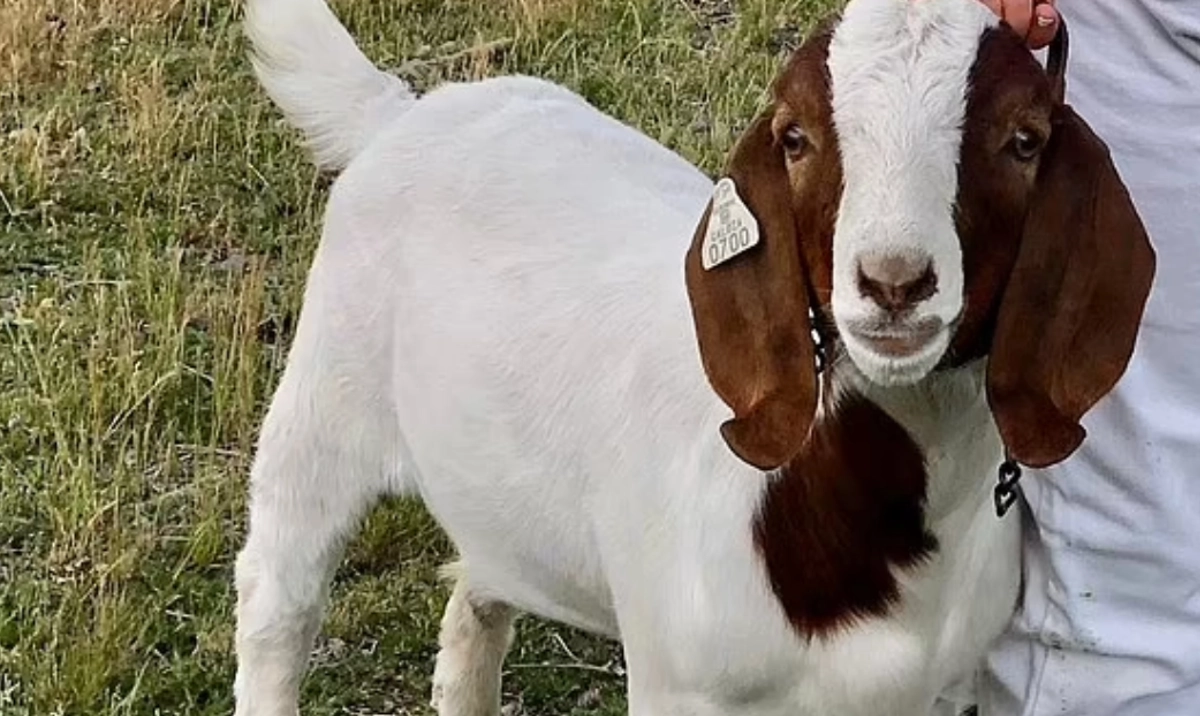A California girl has filed a lawsuit against a local state fair after her pet goat was sold and barbecued after her mom entered it for an auction.
RELATED STORIES: Ticketmaster Hit With Class Action Lawsuit Over “Misleading” Ticket Prices To Drake And 21 Savage’s Upcoming Tour
Jessica Long’s family purchased Cedar in April 2022, and her nine-year-old daughter developed an attachment to the animal after feeding and playing with it daily. However, Cedar was entered into the Shasta District Fair’s junior livestock auction in June 2022. Still, the family later changed their minds and wanted to take the goat off the ticket, as reported by the Daily Mail. Long stole the goat after state fair officials denied the request and sold it for $902. Moments later, police chased the family hundreds of miles through the county to retrieve the goat via search warrant.
Long also wrote an email to officials and called the situation ‘heartbreaking.’ ‘It was heartbreaking. The barn was mostly empty, and at the last minute, I decided to break the rules and take the goat that night and deal with the consequences later,’ she wrote in the message.
RELATED STORIES: Tyga Denies Allegations Of Breaching NFT Project’s $500K Contract; Claims Lawsuit Stems From A “Bad Deal” & Cryptocurrency Market Crash
‘I knew when I took it that my next steps were to make it right with the buyer and the fairgrounds. I will pay you back for the goat and any other expenses I caused. I would like to ask for your support in finding a solution.’
Shasta District Fair CEO Melanie Silva wrote in response for Long to return the goat immediately and that making an exception for her would send the wrong message to children.
‘Making an exception for you will only teach our youth that they do not have to abide by the rules that are set up for all participants. Unfortunately, this is out of my hands. You will need to bring the goat back to the Shasta District Fair immediately.’
The organizer of the barbecue also contacted Long, and the fair’s livestock manager, B.J. McFarlane, sent a text to Long warning her that law enforcement was coming to retrieve Cedar.
The family believes the individuals who purchased Cedar killed him and then roasted him on a barbecue for their guests. The lawsuit states Shasta District Fair officials violated the family’s civil rights, and they are seeking general and punitive damages. Additionally, McFarlane was accused of threatening to have Long charged with a felony count of grand theft if she didn’t return Cedar. It alleges that law enforcement reportedly took Cedar to the fair and returned him to an unknown individual. However, a warrant required them to hold the goat until a court hearing to indicate who was its lawful owner.
It is uncommon for Americans to own a goat as a household pet or livestock animal. According to the USDA Census of Agriculture, there were approximately 2.62 million goats in the United States as of 2017, but this includes both commercial and personal ownership. The majority of goats in the United States are raised for meat, milk, or fiber production rather than as pets.
That being said, individuals and families in the United States certainly own goats as pets, particularly in rural areas or on small farms. Additionally, there has been a recent trend towards urban farming and backyard homesteading, which may result in more individuals keeping goats or other livestock animals in urban or suburban settings.

